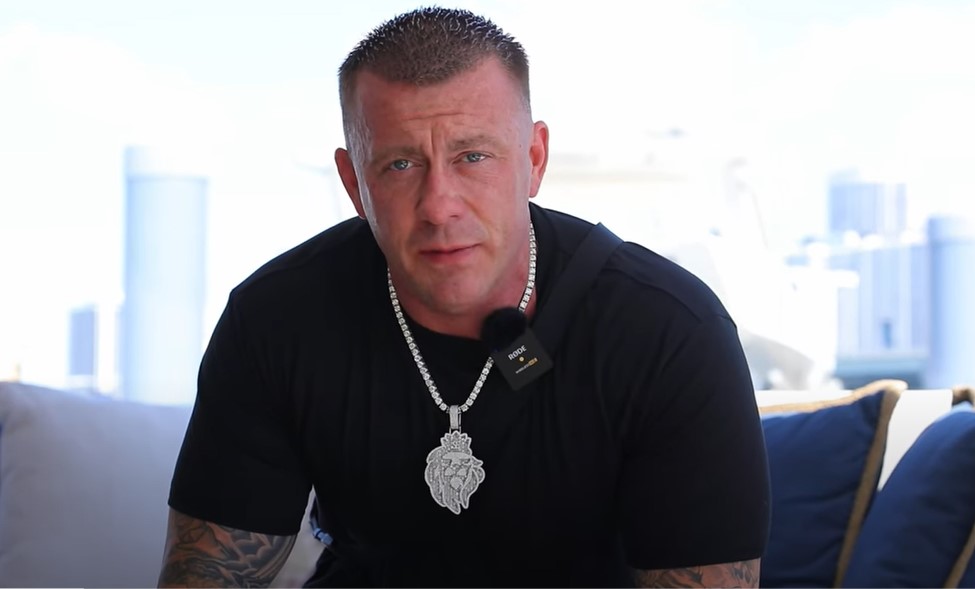By NANCY WEST, InDepthNH.org
BRENTWOOD – The judge hearing the defamation lawsuit Eric Spofford filed against New Hampshire Public Radio has ordered transcripts of interviews with key sources for the story detailing multiple allegations of sexual misconduct against Spofford be turned over for the judge’s confidential review.
The transcripts could ultimately be turned over to Spofford’s attorney and other parties in the case if they contain evidence of actual malice against Spofford, Rockingham County Court Judge Dan St. Hilaire ruled on Tuesday. He also ordered Spofford to pay for the cost of transcribing NHPR’s recorded interviews with their sources.
“The court agrees with Spofford that some of the discovery materials he requests could, in theory, include evidence that the NHPR defendants acted with actual malice,” St. Hilaire wrote in his order.
St. Hilaire dismissed Spofford’s lawsuit before trial on April 17 stating that it didn’t show actual malice which would be necessary to succeed in a defamation case against a public figure. In the dismissal order, St. Hilaire deemed Spofford to be a public figure over his objection that only a jury, not a judge can determine who is a public figure in a defamation case.
Although he dismissed the lawsuit, St. Hilaire gave Spofford 30 days to amend his defamation complaint to include examples of actual malice, after which Spofford’s attorney Michael Strauss filed a motion seeking limited discovery claiming only NHPR had access to interviews that could show actual malice.
St. Hilaire granted most of Spofford’s motion for limited discovery to determine whether there is information that could show actual malice by NHPR against the Salem native, who speaks openly about recovering from alcoholism and heroin addiction. Spofford was the founder and CEO of Granite Recovery Centers, one of the largest addiction treatment organizations in New England.
For his part, Spofford denies any wrongdoing, sold the recovery business for an undisclosed sum in 2021 and bought a mansion in Miami that he showcases on Youtube. On social media, Spofford also talks about his business coaching businesses called Inner Circle, and chartering his $5 million yacht.
St. Hilaire defined actual malice in Tuesday’s order as requiring “’a reckless disregard for the truth,’ or a ‘subjective awareness of probable falsity’ shown through ‘sufficient evidence to permit the conclusion that the defendants in fact entertained serious doubts as to the truth of (their) publication.”
Besides NHPR, Spofford’s lawsuit names lead reporter Lauren Chooljian, reporter Jason Moon and editor Dan Barrick.
Their lawyer Sigmund Schutz had argued against Spofford’s motion for limited discovery.
“Spofford identified no evidence from which malice could be inferred in his complaint, and his motion for discovery provides no reason to expect that the discovery he seeks would lead him to such evidence,” Schutz wrote in his objection. “The Court should decline to issue an order that would let Spofford go digging around in NHPR’s files, based on nothing more than generalized conclusory accusations, in search of a factual basis for his claim.”
When asked for comment Wednesday, Schutz responded via email: “We’re reviewing the Judge’s ruling.”
St. Hilaire turned down Spofford’s request for all of the recorded interviews Chooljian did for the March 22, 2022 story, but ordered they be transcribed for his in-camera review.
“Here Chooljian’s notes during or after her discussions with various sources could potentially indicate she subjectively distrusted the sources’ accounts but decided to report them anyway. In addition, internal communications between Chooljian and other NHPR employees concerning the sources’ credibility could demonstrate that the NHPR defendants displayed a reckless disregard for the truth by reporting a story they knew or suspected was false,” St. Hilaire wrote.
St. Hilaire also agreed with the NHPR defendants that allowing Spofford to go “digging around in NHPR’s files, based on nothing more than generalized conclusory accusations, in search of a factual basis for his claim” would be inappropriate and could have a chilling effect on speech.
Both sides raise weighty considerations, he said.
“The court finds that an in camera review of the materials would properly address the parties’ respective concerns, enabling identification of any materials relevant to actual malice without permitting a fishing expedition that could harm constitutional freedoms,” St. Hilaire wrote.
He said Spofford’s request for all of Chooljian’s reporting on Spofford before the March 22, 2022 story was excessive and irrelevant to this case.
St. Hilaire said actual malice has nothing to do with a defendant’s ill will toward a plaintiff.
“In other words, evidence of bias or ill will towards Spofford, without more, is insufficient to prove actual malice,” St. Hilaire wrote.
St. Hilaire ordered the NHPR defendants to provide the following materials for his in camera review:
Lauren Chooljian’s notes about, communications with and transcribed interviews of “Elizabeth” and “Employee A” with all identifying information redacted or replaced with anonymized identifiers.
Lauren Chooljian’s notes about, communications with and transcribed interviews of Nancy Bourque, Justin Downey, Brian Stoesz, Piers Kaniuka, Lynsie Metivier and Amy Cloutier.
Lauren Chooljian’s communications with NHPR personnel concerning credibility of Elizabeth, Employee A, Nancy Bourque, Justin Downey, Brian Stoesz, Piers Kaniuka, Lynsie Metivier, and Amy Cloutier – redacted regarding identities of Elizabeth and Employee A.
If after his review, he determines certain materials are relevant to proving actual malice in this case, St. Hilaire will identify those particular materials under seal in a further order, then allow the NHPR defendants to object to their dissemination, to which Spofford may reply before he decides whether to provide copies to the parties, St. Hilaire wrote.
Correction: The judge ordered Eric Spofford to pay to transcribe NHPR’s recorded interviews, not NHPR as stated in an earlier version.






